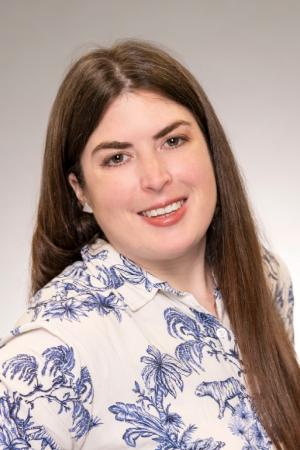Event box

From Folklore to “Fact”: Researching urban legends, supernatural sightings, and haunted ecologies using primary source methods
Ever tried to research something weird like local ghost stories, urban legends, or pop culture history only to get buried in clickbait and Wikipedia rabbit holes? Learn the research techniques that actually work for finding credible sources on unusual and potentially paranormal topics.
Join our humanities librarians for a spooky exploration of how folklore becomes "fact" in the historical record. In this hands-on workshop, you'll learn how to track down the original sources behind famous ghost stories, cryptid sightings, haunted ecologies (think Spooky Lake Month from TikTok), and urban legends using primary source research methods.
We'll examine accounts of local legends, such as the Bell Witch haunting, analyze 19th-century Bigfoot expedition reports, and explore how natural phenomena spark supernatural folklore. You'll learn how to evaluate the credibility of eyewitness accounts, explain the difference between contemporary reports and later retellings, and use digital archives to dig into the social and cultural contexts that gave birth to many supernatural stories.
What - This hands-on workshop will teach you to:
- Navigate newspaper databases and historical archives effectively using advanced search strategies
- Distinguish between primary vs secondary source identification in folklore research
- Evaluate witness testimony and documentary evidence
- Trace the evolution of stories across different media and time periods
- Use historical maps, photographs, and government records as research tools
- Master citation chaining and deep web hunting techniques
- Research ethically when dealing with folklore around tragedy, disability, and marginalized communities
- Understand how natural phenomena and "haunted ecologies" influence supernatural narratives
Why - This session is designed to help you:
- Develop advanced research skills that work for any topic—from separating historical fact from fictional embellishment to confidently navigating specialized databases for your own research projects
- Access academic databases and archival resources that don't show up in regular Google searches
- Build critical evaluation skills for assessing source credibility and understanding the social contexts behind folklore
Who - This workshop is designed for anyone seeking to strengthen their research skills - whether you're fascinated by local mysteries and paranormal phenomena, working on projects involving local history or folklore, or looking to develop effective strategies for researching specialized topics that traditional search methods don't handle well.
How - This one-hour in-person workshop consists of a short lecture and series of live demonstrations that you can follow along with on your own device or simply observe, interspersed with self-paced hands-on activities where you'll practice the techniques on your own research questions or pick from a list of pre-selected urban legends and local mysteries.
Activity - Create a research dossier on a local mystery with proper citations and ethical source evaluation
When - Thursday, October 30th, 4pm-5pm
Where - Hunt Library room 308
Instructors - Charlotte Kiger Price and Ashley Werlinich, CMU Arts & Humanities Librarians
- Date:
- Thursday, October 30, 2025
- Time:
- 4:00pm - 5:00pm
- Time Zone:
- Eastern Time - US & Canada (change)
- Location:
- Hunt Library - Room 308
- Campus:
- Hunt Library
- Audience:
- Faculty Pittsburgh community Staff Students
- Categories:
- Archives Digital Humanities Information & Data Literacy CC
In-Person Workshop Information:
Directions for getting to Hunt Library, Room 308:
Take the stairs or elevators to the 3rd floor and turn left. You'll find Room 308 around the corner from the water fountain across from the Women's restroom.
Workshops and events for Carnegie Mellon University Libraries are open to all, regardless of race, color, national origin, sex, disability, age, sexual orientation, gender identity, religion, creed, ancestry, belief, veteran status or genetic information. All participants are required to follow the Code of Conduct.
If you require accessibility accommodations, please contact the event organizer.


